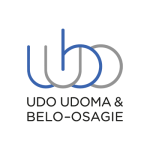SECTION 1: Market overview
1.1 Please provide an overview of the cross-border financing market in your jurisdiction.
In Nigeria, most cross-border financing transactions involve foreign lenders providing loans to Nigerian banks and other corporates. The parties may, in order to gain certain tax benefits, either structure the loan to have, among other things, a tenor of between five to seven years for the interest payments to be partly or wholly exempt from the withholding of tax, or structure the transaction such that the lender would be an entity incorporated in a country that has an effective double tax treaty with Nigeria. For such cross-border financing transactions, the Nigerian party is most likely to be the borrower, as it is not common for Nigerian parties to lend money to foreign entities. Some of the dominant lenders we have seen in the Nigerian market in recent times include international financial institutions, development finance institutions, multi-national banks, export credit agencies and private equity investors and funds.
In order for a foreign lender to remit its interests and principal through the official foreign exchange market, it must provide evidence (in the form of a certificate of capital importation (CCI)) that foreign capital was brought into Nigeria and converted into naira. Other than this foreign exchange requirement, there are no particular requirements that must be met by a foreign lender in order to engage in cross-border financing transactions in Nigeria.
1.2 What have been the key trends or developments in cross-border financing in your jurisdiction over the past 12 months?
The decline in oil prices from 2014 caused a shortage in foreign currency inflow into Nigeria. The country also witnessed a significant reduction in foreign lending to Nigerian institutions. The situation was exacerbated by the challenges encountered by Nigerian borrowers in sourcing foreign exchange to settle their maturing foreign debt obligations to foreign lenders due to the unavailability of foreign currency. This led to parties restructuring some of their foreign loans either by re-denominating the loans, where possible, in local currency or transferring the debt obligations to an offshore related party. Some foreign lenders who took a more optimistic view of the market extended the tenor of their loans.
Responding to the liquidity challenges in the foreign exchange market, the Central Bank of Nigeria (CBN) introduced certain measures, which were aimed at managing the available foreign currency and ensuring timely settlement of transactions eligible for foreign exchange. One of the notable measures was the introduction of a special investors' and exporters' FX window called the Nigerian Autonomous Foreign Exchange Fixing (Nafex Window) on April 24 2017. This enables parties with foreign currency to buy and sell foreign exchange at a market-determined rate. Participants in the Nafex Window can buy and sell foreign exchange at rates mutually agreed between them. In relation to lending, foreign lenders are now able to obtain foreign currency in the Nafex Window at a market-determined rate in order to repatriate interest and principal on loans provided to Nigerian borrowers.
Other notable developments in the Nigerian market are:
the CBN has replaced physical CCIs with electronic certificates. All investors with physical CCIs that have not been fully utilised or cancelled are required to have such certificates dematerialised and converted into e-CCIs. Going forward, CCIs will be issued through the e-CCI electronic platform;
the Federal Inland Revenue Service (FIRS) issued a notice in December 2016 which seems to revise the rate of stamp duty payable on loan agreements. Prior to the notice and as prescribed in the Stamp Duties Act, unsecured loan agreements (as a category of agreements under hand) were subject to stamp duty at a nominal amount of NGN500.00 but the notice specifies that the stamp duty payable on unsecured loan agreements will be assessable at an ad valorem rate of 0.125% of the loan sum. Expectedly, the notice has generated much debate as it has had a significant impact on lending costs in Nigeria. Arguably, the notice by the FIRS cannot amend the provisions of the Stamp Duties Act and, therefore, is illegal. However, until it is set aside by a court of competent jurisdiction, it is certain that, in order to meet its revenue targets, the stamp duties commissioner in assessing stamp duty payable on unsecured loan agreements will do so in accordance with the notice.
1.3 Have there been interesting changes in the structure of the banking sector in your jurisdiction?
In 2016, Providus Bank was granted a commercial banking licence by the CBN to operate as a regional bank.
SECTION 2: Financing structures
2.1 Briefly outline some recent notable transactions involving your jurisdiction, highlighting any interesting aspects in their structures and what they might mean for the market.
There are some notable transactions in Nigeria, which we are unable to disclose for confidential reasons. Some of these transactions have some interesting elements. For instance, in one of such transactions, which involves lending by related parties, the related-party lenders agreed to convert their outstanding loans to equity. This restructuring is aimed at managing the debt portfolio of the Nigerian borrower.
In another cross-border finance transaction, the parties structured the transaction such that an offshore affiliate of the Nigerian entity became the borrower of record even though the purpose of the loan was to finance the project of the Nigerian entity. The loan provided to the offshore affiliate was pushed to the Nigerian entity as an advance payment for products to be exported by the Nigerian entity to third party purchasers. Due to exchange regulations in Nigeria restricting the use of export proceeds, payment for the export by third party purchasers were paid directly to the lender through the offshore borrower.
Another notable transaction that completed recently, is the financing of the Azura Independent Power Plant IPP. In that transaction, the Federal Government of Nigeria nominated the Azura IPP for the world bank partial risk guarantee (WB PRG). Although a number of other greenfield IPPs have been nominated for the WB PRG, the issuance of the WB PRG had a positive influence in the bankability of the Azura IPP and made it possible for the parties to achieve financial close.
2.2 Have there been any significant developments in the way cross-border financing transactions are structured or in the way borrowers and/or lenders are participating in the market?
No.
SECTION 3: Legislation and policy
3.1 Describe the key legislation and regulatory bodies that govern cross-border financing in your jurisdiction.
There is no singular legislation or regulatory body that governs cross-border financing in Nigeria. Where the relevant Nigerian entity is a bank, the bank would be required to comply with the regulations and directives issued by the CBN from time to time.
3.2 Have there been any recent changes to regulations or regulators that may impact the cross-border financing market and what impact do you expect them to have?
No.
3.3 Are there any rules, legislation or policy frameworks under discussion that may impact lenders or borrowers involved in cross-border financing in your jurisdiction?
There is none to the best of our knowledge.
SECTION 4: Market idiosyncrasies
4.1 Please describe any common mistakes or misconceptions that exist about the financing market in your jurisdiction.
A misconception which exists in relation to financing transactions in Nigeria is that foreign lenders often believe that they are able to remit interest and loan repayments made by a borrower, through the official foreign exchange market without a CCI. Even where the lenders understand that a CCI is necessary for repatriation, they believe that once the funds are remitted to a borrower in Nigeria, a CCI will be issued without having to take any further steps. This is largely untrue as the foreign exchange regulations, require that the foreign capital (where it is in the form of cash) being brought into Nigeria has to be converted into naira before a CCI can be issued.
Another common mistake is where parties structure a transaction such that fees (such as agency fees, arrangement fees etc.) payable to the finance parties in respect of the transaction, are deducted at source prior to an inflow of the loan into Nigeria. As we indicated above, a CCI evidences that foreign capital was inflowed into Nigeria and is required to reflect the actual amount of foreign capital brought into Nigeria. Where fees are deducted at source, the CCI will only reflect the amount that was actually brought into Nigeria, which is the loan sum less the fees that was deducted offshore. What this means is that at the time of repayment, the lender can only repatriate the amount indicated on the CCI and interest thereon from the official foreign exchange market (i.e. the loan amount less the fees).
4.2 Are there frequently asked questions or often overlooked areas from parties involved in cross-border financings in your jurisdiction?
Some of the frequently asked questions in cross-border financings include tax and foreign exchange restrictions, corporate benefit rules, whether there are any advantages in having the security documents governed by local law, and enforcement of security. We have discussed the foreign exchange restrictions above. In relation to tax, foreign lenders often seek to understand the rate at which tax would be withheld on payments in lending transactions and the available structuring options. It is possible to structure foreign loans in a manner such that no tax is payable on interest. Some partial tax exemptions can be achieved where the lender is incorporated in a country with which Nigeria has signed a double taxation agreement.
4.3 Are there any classes of assets over which security cannot be taken or regulations specific to your jurisdiction governing the taking of security over certain classes of assets that lenders should be aware of?
Generally, security can be created over all classes of assets. However, there are regulatory or contractual restrictions to the creation of valid and enforceable security over certain classes of assets. For example, under Nigeria's Land Use Act, an assignment, mortgage, transfer, sublease or other disposal of an interest in land requires the consent of the Governor of the state where the land is situated in order to be valid and enforceable. In relation to rights arising under authorisations and licences, since these are considered personal to the beneficiary or licence holder, an assignment or transfer of the beneficiary's or licence holder's rights to a third party as security requires the issuing authority's consent.
The CBN prohibits assigning Nigerian residents' (whether a corporate or a natural person) annuities and insurance policies to non-residents. If a non-resident lender intends to take security over residents' insurance policies, that lender would either: (i) appoint a local security agent to which the insurance proceeds are assigned on the lender's behalf, or (ii) require the borrower to establish an insurance proceeds account into which all insurance proceeds are paid, and then take security over that account. The insurance industry prudential guidelines prohibit the assignment of reinsurance policies.
4.4 What measures should be taken to best prepare for your market idiosyncrasies?
Other than in relation to foreign exchange requirements and corporate authorisations, there are no mandatory or specific requirements that parties are required to meet in order enter into cross-border financing transactions in Nigeria. In entering such transactions, however, parties should seek legal advice at an early stage of the transaction in order to avoid mistakes in structuring the transaction and also to ensure that they do not breach any regulatory requirements.
SECTION 5: Practical considerations
5.1 Briefly explain the downstream, upstream and cross-stream guarantees available in your jurisdiction, with reference to any specific restrictions or limitations.
Under Nigerian law, a company incorporated in Nigeria can provide third party security or guarantee if its constitutional documents permit the company to do so, and if its directors, acting in good faith and in the best interests of the company, approve the arrangement. If the commercial benefit of such arrangement is unclear, it would be prudent for the lenders to obtain the company shareholders' approval confirming that the arrangement is for the benefit of the company.
In relation to upstream guarantees, however, the issue to be considered is whether the subsidiary providing such guarantee to the parent company will breach the financial assistance restriction under Nigeria's companies' law by providing the guarantee.
Section 159 of Companies and Allied Matters Act 2004 (Cama) prohibits Nigerian companies or their subsidiaries from giving financial assistance, directly or indirectly, to any person for the purpose of acquiring the shares of that company or reducing or discharging any liability incurred in relation to such acquisition. This means that where the guarantee is provided by the subsidiary to support a loan which would be used by the parent to acquire shares of the subsidiary, this would amount to a breach of the financial assistance and would be unlawful.
Nigerian banks are restricted from accepting foreign guarantees on naira loans. The only foreign guarantees allowed on naira loans are limited to bank guarantees and foreign currency deposits irrespective of whether the foreign currency is in a foreign bank or in a domiciliary account with a bank in Nigeria. In relation the bank guarantee, CBN regulations require that the foreign guarantor must be a first-class bank or any other bank that is acceptable to the CBN. Where the guarantee is in the form of foreign currency deposits, the funds must be held in an account that is acceptable to the CBN.
5.2 Are there any specific issues creditors should be mindful of regarding a bankruptcy and restructuring situation?
One issue that creditors should be mindful of in restructuring transactions relates to fraudulent preference. By virtue of section 495 of Cama, section 498 of Cama (specifically applicable to floating charges created during the 'hardening period'), and of section 46 of the Bankruptcy Act 2004, any payment, conveyance, security, etc. or other act relating to property made or done by or against a company within the three month period prior to the commencement of winding up proceedings against the company, or of when the company's shareholders pass a resolution for the voluntary winding up of the company, shall be deemed a fraudulent preference of the company's creditors and be invalid accordingly. In this event, the liquidator will have the right to claw back any payment made during this period. A lender may however challenge the liquidator's right to claw back such security or guarantee if it can establish that the borrower or the guarantor was in fact not insolvent at the time of the conveyance, payment or creation of security.
5.3 Do foreign debt quotas apply in your jurisdiction and is offshore financing to domestic entities monitored?
Foreign debt quotas, generally, do not apply in Nigeria. However, where the borrower is a Nigerian bank, such bank must comply with the foreign currency exposure limits stipulated by the CBN.
5.4 Describe your jurisdiction's relationship with non-performing loans (NPLs), including volume of outstanding NPLs and techniques/challenges in managing them.
The issue of non-performing loans (NPLs) is relevant in respect of financing transactions where the lender is a Nigerian bank. The total NPLs which a Nigerian bank is allowed to hold cannot be more than 5% of the bank's total loan portfolio. Banks are required to make provisions ranging from 25% to 100% of the outstanding amount depending on the number days for which the loan is delinquent. According to the Financial Stability Report of the CBN in 2016, the ratio of NPL to gross loans was 14% as at December 2016.
SECTION 6: Outlook
6.1 What are your predictions for the next 12 months for cross-border financing in your jurisdiction? How do you expect legal practice to respond?
Following the introduction of the Nafex Window, which has enhanced liquidity in the foreign exchange market, we are seeing an increase in foreign investment into Nigeria. Barring any significant shock in the market, we expect, therefore, that there will be an increase in cross-border financing over the next 12 months. Agriculture and export related funding seem to be on the increase and we expect to see more cross-border funding for this sector. We also believe that export credit agencies and investment funds will become a significant provider of cross border funding in the next 12 months.
The Nigerian government intends to launch a Power Sector Recovery Programme (PSRP) in partnership with the World Bank Group (including the International Finance Corporation (IFC), the Multilateral Investment Guaranty Agency (Miga) and the African Development Bank (AfDB)) to restructure the sector. As part of the PSRP, the World Bank Group will directly invest $2.5 billion once certain conditions are met, the AfDB will invest $1billion and the IFC and Miga have, in principle, offered to mobilise additional $2.7 billion of private capital to the sector. A key obligation of the FGN under the PSRP is to publish and implement a cost-reflective tariff structure.
Ahead of the PSRP and to address the liquidity challenges in the power sector, the FGN approved a NGN701 billion ($2 billion) payment assurance guarantee (PAG) for the power sector, which is provided by the CBN. The PAG is to ensure that undisputed invoices issued by the power generating companies within 24 months from January 2017 are paid in full by the Nigerian Bulk Electricity Trading. With these measures, we expect to see more cross-border funding in the electric power and gas sectors.
In addition to demonstrating competence and experience in delivering legal work of a very high standard, we expect that law firms will be very competitive in pricing in order to win deals.
About the author |
||

|
|
Aniekan Ukpanah Partner, Udo Udoma & Belo-Osagie Lagos, Nigeria T: + 234 1 462 2307-12 W: www.uubo.org Aniekan Ukpanah heads the firm's banking and finance practice as well as the projects and infrastructure practice. His specialisations include banking, capital markets, corporate and project finance, syndicated lending, debt restructuring, securitisation and infrastructure projects including public private partnerships. Ukpanah also has particular expertise in multi-sourced financings. He has advised clients extensively on project development and infrastructure financing transactions. A good number of his transactions have been recognised as award winning deals in Nigeria. |
About the author |
||

|
|
Onyinye Okafor Managing associate, Udo Udoma & Belo-Osagie Lagos, Nigeria T: + 234 1 462 2307-12 W: www.uubo.org Onyinye Okafor is a managing associate in the firm's banking and finance team. She is familiar with the documentation requirements for the implementation of financing arrangements. Her specialisations include corporate and project finance, derivatives and structured finance, debt restructuring, syndicated lending, on-lending transactions, secured transactions, capital market and insolvency. She has been involved in the structuring and financing of various projects and advises clients on a day to day basis on a range of corporate advisory matters and issues concerning the creation and perfection of security. |

